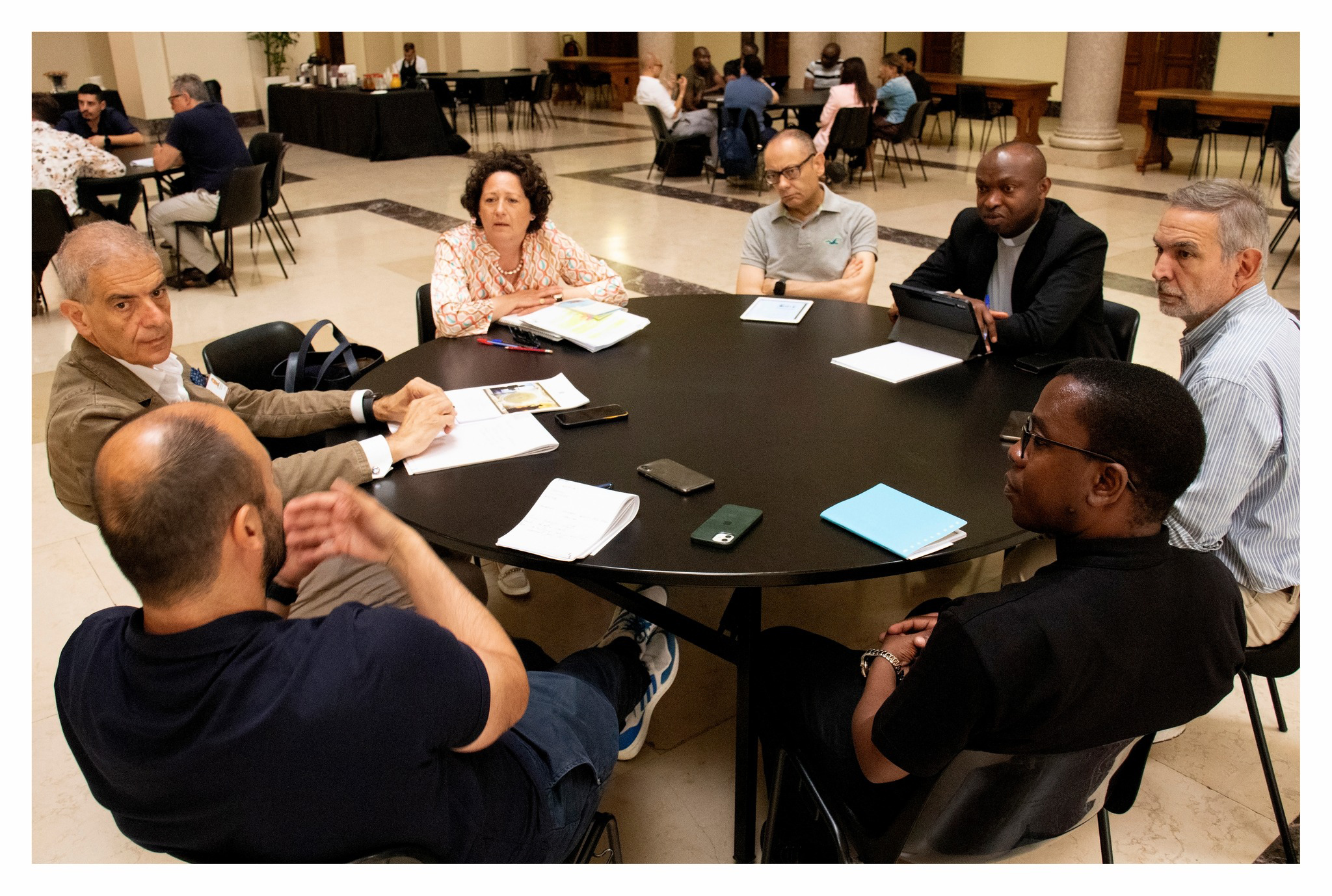- Home
- La Gregoriana
- 62 - Building the Future
- For human and professional development
Share:

Now in its fifth year, the Diploma in Leadership and Management
has developed both in terms of participants, teaching quality and resourcefulness.
What we want to offer them is the appropriation of the language
and style of presence of an adaptive and sustainable leadership,
centred on service, community and Jesuit values.
The Diploma in Leadership and Management, now in its fifth year, has grown both in terms of participants (there are now around 300 alumni) and in terms of didactic content and resources. The Diploma is made up of a total of 8 face-to-face courses, held on Saturdays of each month throughout the academic year. This allows students who are already professionally active, as well as those who are currently studying at other universities, to enrol in the Diploma course as a refresher course or as a complement to their curriculum. The students attending the courses are mostly lay persons (70-80%) as well as professionals.
In fact, today there is a strong need for engagement with decision-makers, a desire to gain a new understanding and experience of national institutions, with a combined focus on the local and international landscape. The typical profile of the student pursuing the Diploma is that of a person driven by a strong intellectual curiosity and a yearning to achieve a new and not just theoretical balance between his or her human and professional paths, perhaps at a time of life reorientation that could lead to a promotion or career change.
The purpose of the Diploma is to offer students the language and style of an adaptable and sustainable leadership, centred on the service, the community, and the values of the Society of Jesus, through lectures, individual study, testimonies and personal exchanges. In the area of management, the training offered is based on the foundations of Christian ethics, the Church’s social teaching and pioneering experiences such as the method and approach of the Jesuit priest Alessandro Valignano in his mission in Asia.
The teaching methodology is a combination of lectures and seminars, with a strong emphasis on student participation. Some twenty lecturers will run the classes over the course of the year. This seminar technique, inspired by Michel de Certeau, aims to fully restore academic socialisation and is carried out through group work and interactive discussions. The opportunity to meet with scholars to discuss the theoretical subjects, along with the educational visits to selected sites in the city of Rome were very much appreciated.
- For more information, see the Diploma page


